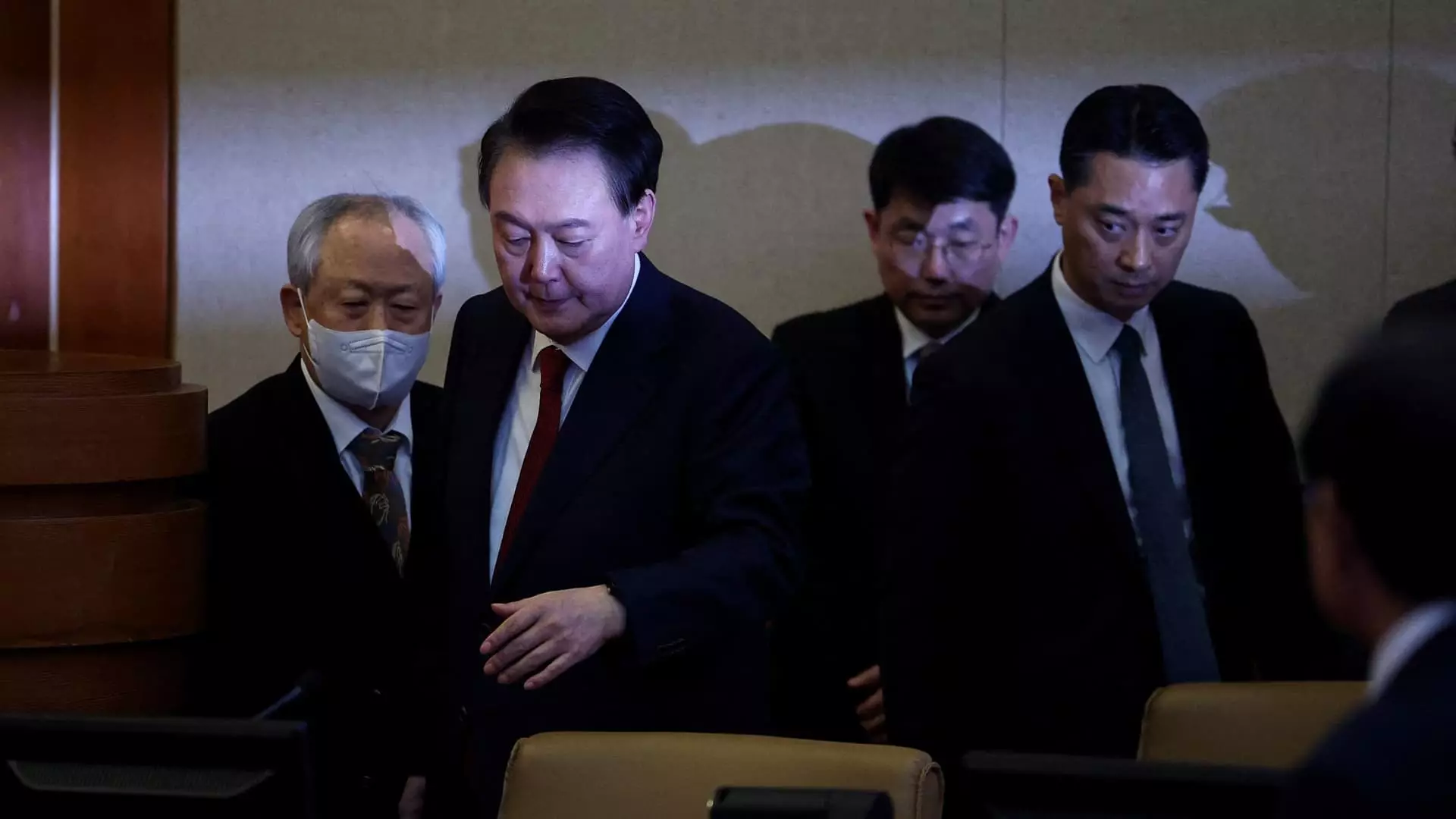The recent ruling by South Korea’s Constitutional Court to uphold the impeachment of President Yoon Suk Yeol signifies a monumental shift in the nation’s political landscape. This unprecedented outcome not only marks a pivotal moment in South Korea’s democracy but also sets a compelling precedent about the accountability of leaders in the face of egregious abuses of power. The unanimous decision, delivered by Chief Moon Hyung-bae, dismantles Yoon’s audacious attempt to impose martial law—a move that echoes authoritarian practices discarded decades ago in a country that cherishes democratic values.
A Martial Law Crisis or Political Panic?
Yoon’s justification for martial law was couched in rhetoric that painted a dire picture of threats from “North Korean communist forces” and “anti-state forces.” Such claims, while rooted in historical tensions, seemed more reflective of a leader in panic than of strategy informed by rational governance. The subsequent backlash from lawmakers immediately voting down his decree suggests a robust system of checks and balances that appears to have prevented a dangerous escalation. The court’s ruling, which clarified that Yoon’s actions did not meet the legal requirements for declaring martial law, highlights a crucial lesson in democratic practices: fear should never substitute for sound judgment or lawful procedures.
The Impact on Governance and Economy
With the reinstatement of Prime Minister Han Duck-soo as acting president, there is a significant opportunity for stabilization amid political upheaval. The interim nature of Han’s role may provide a necessary buffer to restore national confidence in governance, even as markets reacted with a mix of anxiety and cautious optimism. The Kosdaq’s rise in the wake of this political turmoil indicates a potential for resilience among investors who perhaps see this moment as an opportunity for a fresh start—an opportunity that encourages political leaders to focus on inclusiveness and the rule of law rather than division.
The Implications for Future Leadership
Looking ahead, the countdown to the presidential election represents a critical moment for South Korean democracy. The electorate is likely to reflect on Yoon’s tenure—a cautionary tale of how the pursuit of power can lead to perilous missteps and a disregard for democratic principles. The forthcoming leadership election will be a telling indicator of how voters prioritize accountability and transparency, qualities that seemed to evaporate during Yoon’s administration. When citizens reclaim their power through the electoral process, they must demand leaders who respect democratic norms and their own rights, ensuring that a similar crisis does not unfold again.
In an era marked by global unrest and uncertainty, South Korea’s embrace of democratic resilience stands as a formidable statement against the retrogressive pull of authoritarianism. The decisions made in the electoral year following Yoon’s impeachment will not only shape the future of South Korean governance but may also inspire democratic movements worldwide striving to uphold civil liberties against encroaching tyranny.

